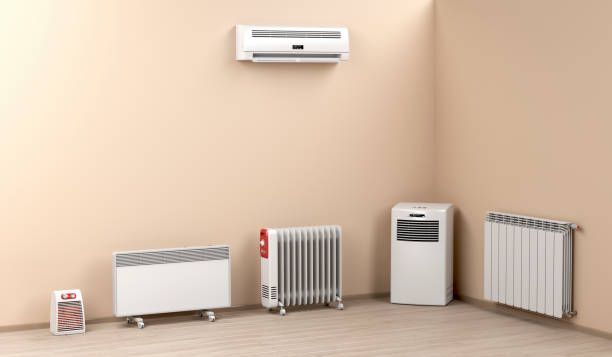The Ultimate Guide To 1 Source Portable Air
Not known Facts About 1 Source Portable Air
Table of Contents1 Source Portable Air Fundamentals ExplainedSome Of 1 Source Portable AirThe Best Guide To 1 Source Portable Air6 Easy Facts About 1 Source Portable Air ExplainedHow 1 Source Portable Air can Save You Time, Stress, and Money.
Running costs are based on an electricity rate of 40c/kWh. The expenses for 3 months' usage in winter months are based on 500 hours utilize, or roughly 6 hours each day for three months. Maximum heat output is based on the optimum wattage of the models we've evaluated (we focus on higher wattage heaters).
This relies on what price you're checking out ahead of time acquisition, or running expense? Customarily, there are compromises with either option. On average, small follower heating units are more economical to get, however can have higher running costs. Oil column heaters will be the most affordable on the market to run (generally) yet just by a narrow margin ahead of convection heaters (like panel and micathermic panels).
The Basic Principles Of 1 Source Portable Air
If you have a reversible ceiling follower, it'll assist spread the warm around the area extra evenly. The designs in our electric heating systems test generally variety in cost from well under $100 to over $900, however we've discovered a greater price doesn't constantly imply much better performance. A number of expensive heaters have fallen short to thrill our testers, while some cheaper models produce remarkably bargains.
As the name recommends, they emit heat from a red-hot burner (so the family will have to take turns being in front of it). There are floor and wall-mounted designs readily available. Radiant heating units are reasonably low-cost. They have a cosy radiance and individual warming effect, like being in front of a fire.
Glowing heating systems normally cost in between $20 and $200. Oil-filled column heaters don't actually melt oil they utilize electrical energy to heat up the oil that's sealed inside their columns or 'fins'.
All about 1 Source Portable Air
Some column heating units aren't even oil-filled however rather use various other material or home heating innovation to work similarly - 1 Source Portable Air. The danger of fire with an oil column heating unit is low compared to various other heater types, yet never absolutely no. Oil heaters don't have actually exposed aspects like radiant heating units do, and their surface area temperature is less than many other heating system kinds (their big surface makes up for it)
Oil column heating units will not explode, and while they don't shed their oil to create heat, it's still flammable, so there is a fire danger if the oil leakages, if the heating system ideas over and leaks, or if combustible things or textile enter get in touch with or drop on the heating system. You need to exercise the same degree of caution with oil heating systems when it comes to various other heater types, and never hang towels or clothing over one to completely dry them make use of a drying rack instead, at the very least one metre away.
Column heating systems are particularly helpful in spaces where they'll be activated for extended periods of time or where they'll run have a peek at this site neglected, such click to read as overnight in a room. The surface areas you're most likely to discuss a column heating system do not obtain as warm as various other kinds of electrical heating systems. You can use a ceiling follower on really reduced rate to help the column heating system to disperse the warm quicker and extra equally.
If there's not much air motion (for instance, if you're resting analysis or watching television), the warm may not be distributed equally. Oil-filled column heating systems usually set you back between $50 and $450. Convection and panel heating units draw cool air over an electric heating component. The heated air then leaves the heating system and increases towards the ceiling, while cooler air relocate to replace it.
The Basic Principles Of 1 Source Portable Air

Convection and panel heating systems are much more mobile than their oil-filled column heater counterparts due to the fact that they're considerably lighter. They'll warm the air in a room uniformly and quickly. Like a column heater, you can utilize a ceiling follower on very low speed to disperse the warm much faster and more evenly. Some versions, particularly panel heating systems, are somewhat costly to acquire.

Indicators on 1 Source Portable Air You Need To Know
Follower heaters are usually smaller sized and more mobile than various other electrical heating units. They likewise are available in the form of tower fan heating units, which can be better for distributing warmth around bigger areas because of their taller profile. They can heat the air in an area a lot more quickly, evenly and promptly than a few other heater kinds.
They can be rather loud with the fan on complete power, though are usually sensibly silent at reduced fan rates. Fan heaters (ceramic or otherwise) usually expense between $60 and $900. Ceramic fan heating systems aren't necessarily any various in price to non-ceramic versions. A fairly recent entrant into the consumer market, infrared heating systems warm the room like the sun heats your face (without the UV rays so no risk of skin cancer). 1 Source Portable Air.